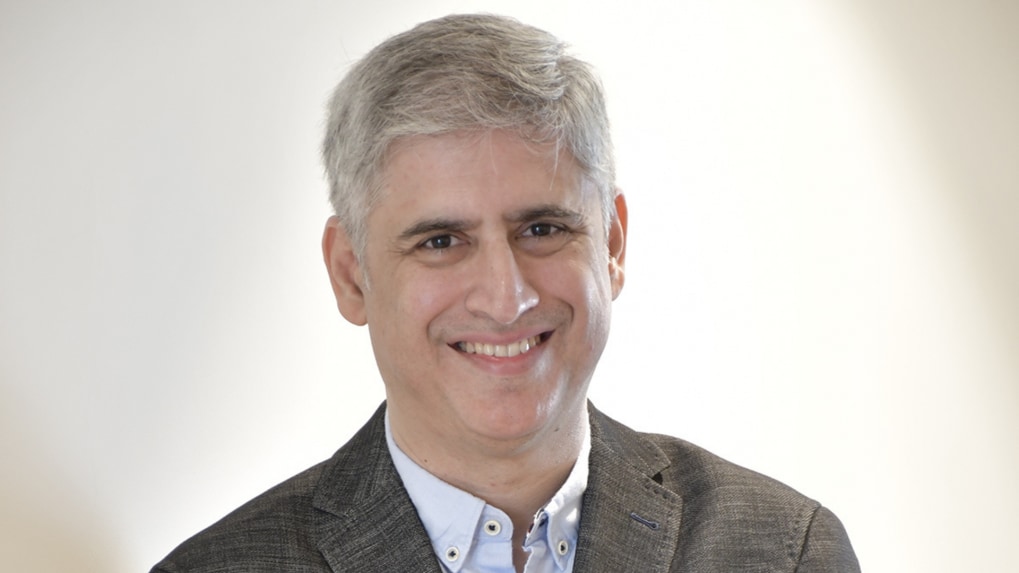'I’m the Unilever trailing spouse': Harsha Razdan on life, leadership and reinventing Dentsu
Harsha Razdan is leading Dentsu India’s reinvention with ego-free leadership, outsider insight and a people-first approach to transformation. Razdan speaks to Storyboard18's Delshad Irani in an exclusive interview.
ADVERTISEMENT
When Harsha Razdan took charge of Dentsu South Asia in 2023, the agency group was flailing. After years of hyper-growth driven by acquisitions, Dentsu India was weighed down by overlapping brands, leadership exits, client churn, and a growing identity crisis. For nearly two years, the company operated without a CEO. Into this uncertainty stepped Razdan, a veteran of FMCG and consulting, but a stranger to the ad world.
“I did a lot of preparation - 60 to 70 days in advance, because I didn’t know what was coming my way,” he told Storyboard18's Delshad Irani in an exclusive interview. He came in cold, uncertain whether he would be accepted by clients or the tightly knit ad fraternity. “I was actually more defensive than the clients were,” Razdan admitted. “What I thought was a disadvantage in my mind turned out to be a big plus, seen by everyone who was meeting me.”
He spent his early months away from the spotlight - quietly rebuilding Dentsu’s operating model, meeting stakeholders and restabilizing internal teams. In that time, he also rebuilt trust with Tokyo headquarters, which had been shaken after a turbulent two-year period. “The last one-and-a-half years were about establishing trust with Japan,” Razdan said. The visit of Dentsu Inc.'s Global CEO in late 2023 marked a turning point: India was once again seen as a strategic growth market, and Razdan was tasked with leading the turnaround.
A CEO without legacy, a company seeking one
Razdan quickly understood what needed to change. He consolidated Dentsu’s multiple agency brands under a single face-to-client model, ensuring the top 75 clients had a unified experience. “When I came in, clients were saying: ‘I don’t know which brand you bought is talking to me,’” he said. The goal was to eliminate internal competition, remove client confusion, and integrate media, creative, tech and services under one roof.
He knew success wouldn’t come from trying to replicate traditional agency approaches. “My relationships over the past have been CEO-related more than CMO,” he said. “I go to every meeting one-on-one—that’s when you have a genuine discussion, that’s when you know what’s going wrong.” Those early client conversations were revealing. “They don’t want brokers. They want practitioners,” he said. “They want us to sit at the table, solve problems, and be accountable.”
Leading without ego, listening with intent
For Razdan, leadership is purpose-driven, ego-free and centered around empowering people. “There’s not too much I can do unless the army is actually charged up,” he said. His two leadership anchors - “fit for purpose” and “fast fail” - run through every transformation decision.
“Everyone in our company will not be fit for purpose for every possible talent,” he explained. “That’s why you need an orchestra, not just one instrument.” His approach is to find what each person excels at, rather than try to fix their weaknesses. With “fast fail,” he encourages experimentation. “I don’t care if you fail,” he said. “What I care about is that when you fall, you actually get up and become a better version of yourself. I will be the safety net.”
Razdan also walks the floor often, engaging with teams casually. His favorite question to ask employees? “What do you want to do in life?” He doesn’t expect stock answers. One person said they just wanted a ride in his car. “Go take it - it’s a company car,” he laughed. These moments help dismantle the old agency hierarchy and build a culture that prioritizes ownership and trust.
He is also actively recruiting from outside the advertising industry, bringing in former Amazon executives for retail media, sports leaders from IMG, and consultants for B2B to power Dentsu’s expansion into emerging verticals like gaming, entertainment, and sustainability marketing.
Humble confidence
When asked about his biggest strength, Razdan points to something deceptively simple: honesty, and the ability to speak plainly and directly - without the baggage of legacy. It reflects what Razdan calls “humble confidence,” a leadership philosophy shared by Dentsu’s global CEO. “You don’t have to go around shouting that you’ve done a great job even before the job has started,” he said.
Just as central to his approach is an unwavering moral compass. Integrity, he believes, is the foundation that earns long-term trust—from colleagues, clients and the larger industry.
The personal reset
Razdan’s clarity on leadership also extends to how he manages his time. “I don’t send emails over the weekend unless it’s urgent,” he said. “You’ll see 30 emails queued up to go at 6:00 a.m. on Monday.” For him, balance isn’t about switching off completely, it’s about being present where it matters.
He credits much of his personal grounding to his wife, Anuradha Razdan, Global CHRO at Unilever. “She’s my biggest friend. Everything is bounced off her,” he said. The couple has a rule: no matter where in the world they are, they speak at 10:30 p.m. every day. “I’ve enjoyed being the Unilever trailing spouse,” he quipped, saying the role has given him a unique perspective on work, life and leadership.
WATCH


